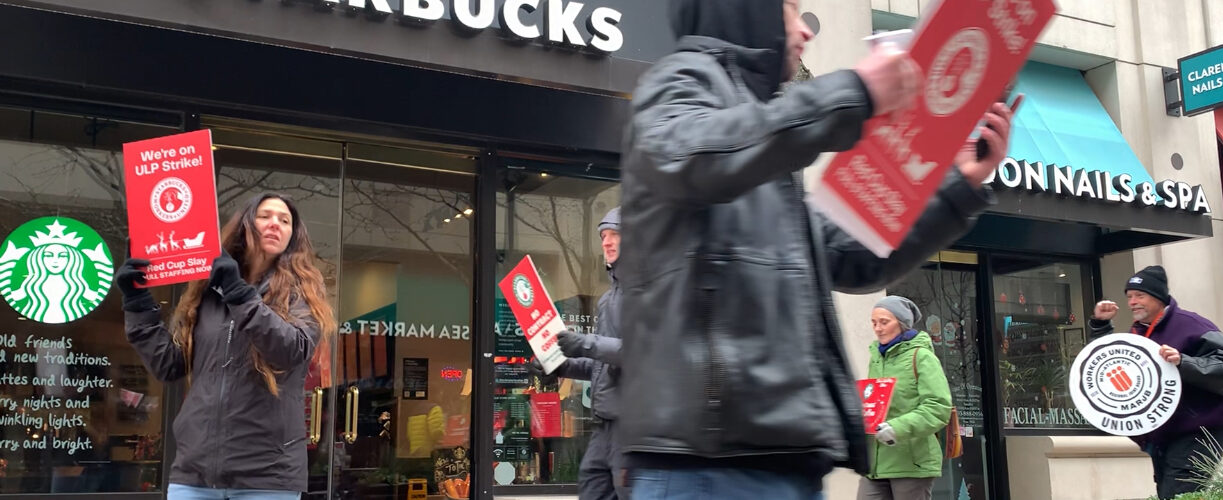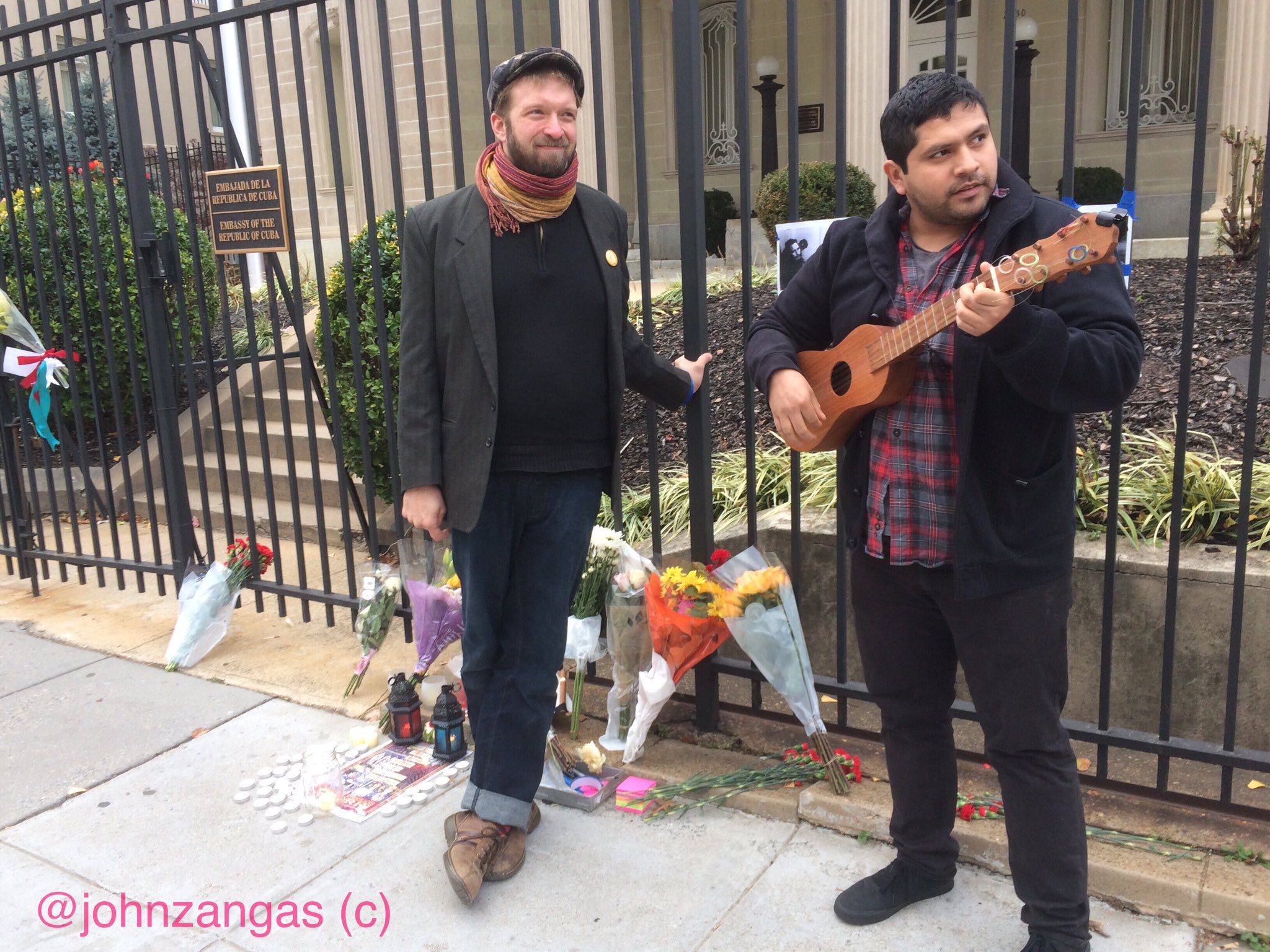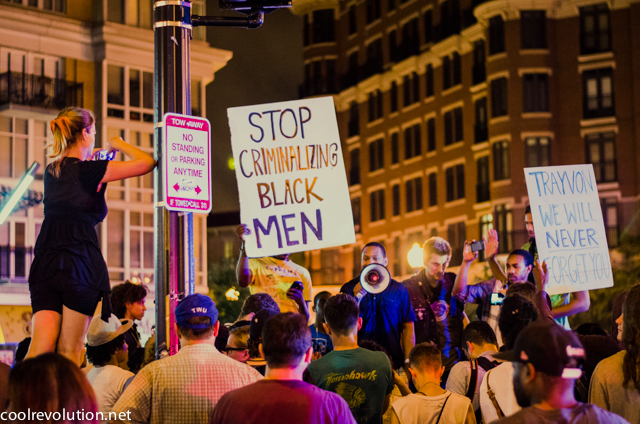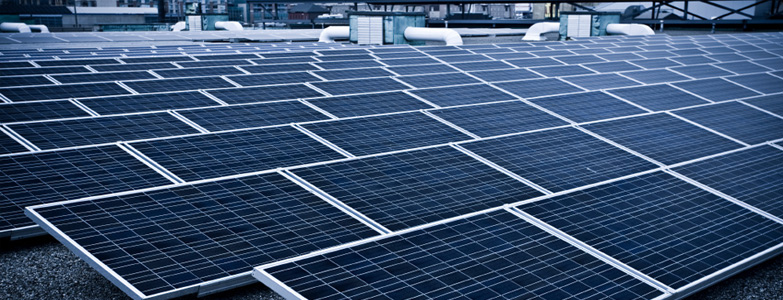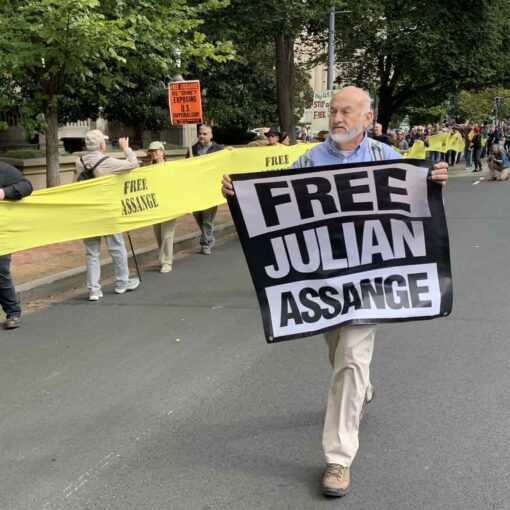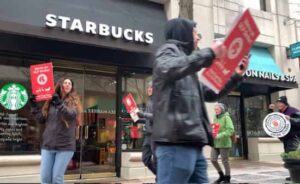
Washington DC—Over 5000 baristas walked off their jobs on Christmas eve in the largest action ever taken against Starbucks corporation. It was the fifth day of an escalating strike stretching from coast to coast across the country. The action involved over 300 stores that had previously voted to join Starbucks Workers United Union (SBWU) according to a press release from the union.
The strike comes amidst growing tensions between SBWU Union representatives and Starbucks corporate lawyers after 98% of union members voted to reject a wage increase of less than 2%. The Starbucks wage offer amounts to about 35 to 50 cents per worker and would not go into effect until the next fiscal year. The corporation offered no increases or relief for its barista healthcare package. (See video at foot of this story or here.)
The cost of living for the average U.S. worker was 2.7% ending on November 2024, according to a calculated cost average provided by the U.S. Department of Labor. For the same period In 2023, the cost of living increase was 2.6%. That means that the wage increase offer from Starbucks corporation was effectively at least 0.7% lower than the increase in the cost of living for last year and another 0.6% lower for the year before, placing Starbucks baristas at an increased economic disadvantage in terms of inflation.
Meanwhile Starbucks corporation has enjoyed increasing profits year over year during the same two periods. Starbucks corporation is the second highest profitable fast food company in the nation.
Union Stores Provide Barista A Voice
In December 2021 baristas in the first U.S. Starbucks store voted to form a union in Buffalo, NY. In the three years since then about 517 stores have voted to join SBWU Union with a steady increase of baristas voting to unionize at several stores each week. Each store is considered a separate work site, so baristas in each location are required to independently vote to join the union, and each store requires a majority of baristas to vote for union protection.
Starbucks representatives would not negotiate with the baristas when the union first organized but showed up to negotiations anyway without responding in substance to union negotiators. Starbucks corporate lawyers would only listen to union offers and then abruptly walk out. As the number of locations began to increase and public pressure began to build on Starbucks representatives to bargain with the union, they began to respond during the negotiations. Growing awareness that baristas were unionizing brought pressure on Starbucks corporation to take the union seriously and it first began to respond to the SBWU Union negotiation team in February 2024, over 2 years after the first Starbucks stores unionized.
The corporate representatives promised to complete a negotiated package by the end of 2024 but their wage and benefits offer to SBWU Union fell far short of union expectations. The backtrack began after the incoming anti-union administration was elected. It cannot be absolutely determined whether or not the election was the reason Starbucks representatives backtracked on their promises to offer reasonable wage increases but it is apparent, at least coincidentally, that many of the incoming administration’s cabinet and key position appointees are noted billionaires with corporate interests and none are union supporters.
“Starbucks has yet to present workers with a serious economic proposal. This month, less than two weeks before their end-of-year deadline, Starbucks proposed an economic package with no new wage increases for union baristas this year and a guarantee of only 1.5% in future years, which amounts to less than 50 cents an hour for most baristas,” wrote Molly Nunez, a press spokesperson for SBWU.
Starbucks Profits While Baristas Struggle
Starbucks is one of the most profitable companies in the United States with over 16,480 locations in the U.S. and over 40,200 locations worldwide, according to Cafely, a statistical research blog.
According to a Starbucks financial release in September, 2024, consolidated net revenues declined 3%, including on a constant currency basis, but Starbucks still had $9.1 billion in net revenues.
In 2023, net revenues were $6.9 billion.
There is sharp contrast between the median Starbucks barista wage of $17.50 per hour compared to the $50,000 per hour compensation package for CEO Brian Niccol. The Starbucks CEO makes over 2800 times the median wage of Starbucks baristas.
Court House Starbucks in Northern Virginia Joins Strike
The Starbucks store at Court-House in Northern Virginia joined the strike for 1 day. It was a cold and icy Christmas eve but several dozen took place in the strike which included affiliated union representatives and union allies as well as baristas from the store itself. Several former baristas also joined the strike to show their support of the baristas now employed.
All but one of its baristas from the Court House location took part in the strike. Managers from other Starbucks locations opened and staffed the store but the striking baristas outside dissuaded dozens of customers from crossing the picket line into the store by their presence. Baristas were careful not to block the doors of the store and allowed customers to freely go into the store but many customers chose not go inside in sympathy with strikers. Other customers chose to patronize a open deli across from the Court House Starbucks. Striking baristas handed out flyers to customers outlining their concerns about Starbucks low wage offer, worker treatment, lack of hours and reduced staffing, while they explained why they were striking. Some customers joined baristas for free coffee and doughnuts which baristas provided on a table outside the store.
Baristas and supporters picketed into the afternoon, chanting demands for a fair and equitable contract. They waited and watched as the managers staffing the store closed it at 12 noon, 6 hours before it was scheduled to close.
Sam Ducore, a barista for 13 years and a union leader at the Court House Starbucks said that wages have not kept up with inflation and told of the economic struggle many baristas face. He also spoke of the many hundreds of unresolved labor practice complaints still pending with the National Labor Relations Board (NLRB), an independent Federal agency that mediates issues in the workplaces of private employers.
“The company still has 100s of unresolved unfair labor practice [complaints],” said Ducore. “They have backtracked on the negotiations and not given us a fair wage.” Ducore explained that baristas are currently paid starting wages of $16.75 per hour but must work 5 years to qualify for a wage increase and then must work another 5 years to qualify for a second increase. He also noted the lack of hours given to baristas often fell under the 20 hour threshold for healthcare benefits. This along with late posting of schedules made it difficult for baristas to plan their work and life balance, he explained.
“They’re out here playing with people’s lives,” he said. He related his personal experience of being forced to hold off travel plans to visit family out of State during the holidays because the store manager posted the work schedule too late for him to plan travel.
The NLRB is vested with the power to safeguard employees’ rights to organize and to determine whether to have unions as their bargaining representative. The agency also acts to prevent and remedy unfair labor practices committed by private sector employers and unions, according to its website. Starbucks has hundreds of pending cases related to barista petitions.
Many Customers Supported The Starbucks Barista Strike
Many customers supported the strike once they understood why baristas were striking and decided not to enter the Court House location, at least for the period while the strike was in progress. Most customers who did not go into the store did not want to comment about their decision not to go inside but one customer did. Mya Mason who had previous experiences working in retail, said she did not go inside because she understood what was at stake with the workers struggling to make ends meet.
“I think it’s commendable that the working class is uniting,” said Mason. “If they don’t get what they’re asking for I’d choose not to go into Starbucks again,” she said.
Mason also was disappointed that Starbucks corporation stood against the Palestinian rights, an issue important to her. She previously boycotted Starbucks for a period over this issue.
Multiple union leaders joined the Starbucks baristas on the picket line, including Joseph McClure, President of DC-Baltimore Pride at Work, a union which advocates for the LGBTQIA+ community. DC-Baltimore Pride at Work is affiliated with the Communications Workers of America (CWA).
“Pride at Work and CEA supports SBWU Union because so many Students baristas are LGBTQIA+,” said McClure. “One big issue for us is that most workers can’t afford to live in the neighborhoods they work because housing is too expensive and they have to commute a half hour or more just to get to work. Workers rights are human rights so we support the workers trying to unionize.”
After the store had closed early, customers continued to stop only to find locked doors. Ducore waited and watched the disappointed customers stand at the door for a few moments before he spoke, “You see, this is what happens when Starbucks doesn’t treat their baristas right—they go on strike.” It was probably the most effective message helping customers to understand what Starbucks baristas were going through and that there were consequences for Starbucks labor practices.

